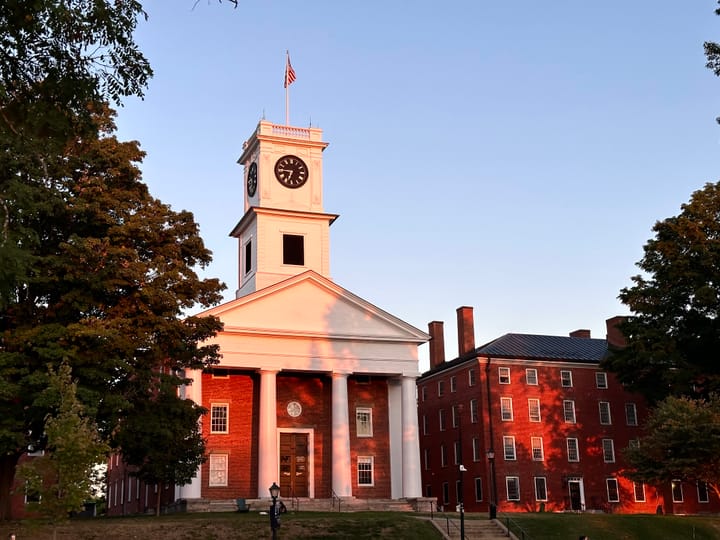College Projects $34 Million Budget Downturn, Will Spend Additional $12 Million From Endowment
In a communication to staff and faculty on Sept. 14, Chief Financial and Administrative Officer Kevin Weinman announced that the Board of Trustees had approved a budget proposal for the current fiscal year (FY21), spanning from July 1, 2020 to June 30, 2021. The budget estimates that Covid will have a $34 million impact though decreased revenue and increased expenditures and will also draw an additional $12 million from the endowment compared to a normal fiscal year, relying on this additional cash flow for 60 percent of the college’s operating budget.
As with all colleges and universities, the financial impact of the coronavirus has been significant after forcing most students to return home last March and switching to remote learning. In early May, the college noted in an email to staff and faculty that the costs of the pandemic for that fiscal year, ending June 30, would total to $10 million. The email also anticipated a long-term budgetary challenge that would present itself in coming years, a prediction that has manifested itself in this most recent budget.
“Given the extraordinary financial challenges brought by COVID-19, this has been the most difficult budget process in many years,” Weinman wrote in his FY21 communication. “In addition, it is becoming clear that these challenges will persist to some degree for years, and will require significant and lasting changes to our budget — both revenues and expenses — to fully address.”
The $34 million impact on the budget is especially significant considering the typical yearly budget of around $200 million. According to Weinman, “this means that the pandemic has impacted one out of every six dollars in our budget, the most severe financial disruption to the college in generations.”
Weinman listed three main areas constituting the budget shortfall: lowered tuition, room and board fees, which account for $16 million; expenditures for remote and hyflex learning, which total to $12 million; and reductions in other “ancillary revenue,” including summer programs and lower alumni gifts, which sum to a decrease of $6 million this year.
To account for the disruption, the college plans on increasing endowment spending by $16 million; Weinman noted that the college had already intended on pulling $4 million more from the endowment compared to last year before the pandemic, and so the total additional change amounts to $12 million. The college will also lower expenses by another $12 million through reduced campus activities.
“Amherst will fund over 60 percent of its FY21 budget from the endowment, by far the highest in our history and likely an unprecedented figure in the history of our peers,” Weinman wrote. “In addition, our endowment spending rate (dollars spent from the endowment as a percentage of the total endowment value) will be higher than at any time during the last quarter-century, while remaining within a prudent range.”
The endowment itself has been volatile in past months due to market fluctuations and a recession wrought by the pandemic, but has since rebounded. “Thankfully, the endowment has rebounded quickly from its March lows, and the endowment remains strong,” Weinman wrote. “However, uncertainties abound, and we cannot simply rely upon elevated spending from the endowment as a recurrent strategy.”
For the future, Weinman reiterated that the financial disruption would likely result in “a substantial annual budget gap in the coming years,” and that the budget would likely not see a return to normalcy in the near future. As such, the college administration intends to look for more long-term measures of adjusting the budget to avoid reliance on what they see to be short-term measures.
“In the past, the Amherst community has always risen to the challenge when facing financial difficulties. Individuals from across the community have come together to assess the situation, provide input, and evaluate options. We will do so again in order to accelerate the pace of our recovery and position Amherst College to thrive in the post-pandemic future,” Weinman ended. “I have no doubts that Amherst College will emerge from this situation very well-positioned strategically and financially for continued success in the future.”





Comments ()